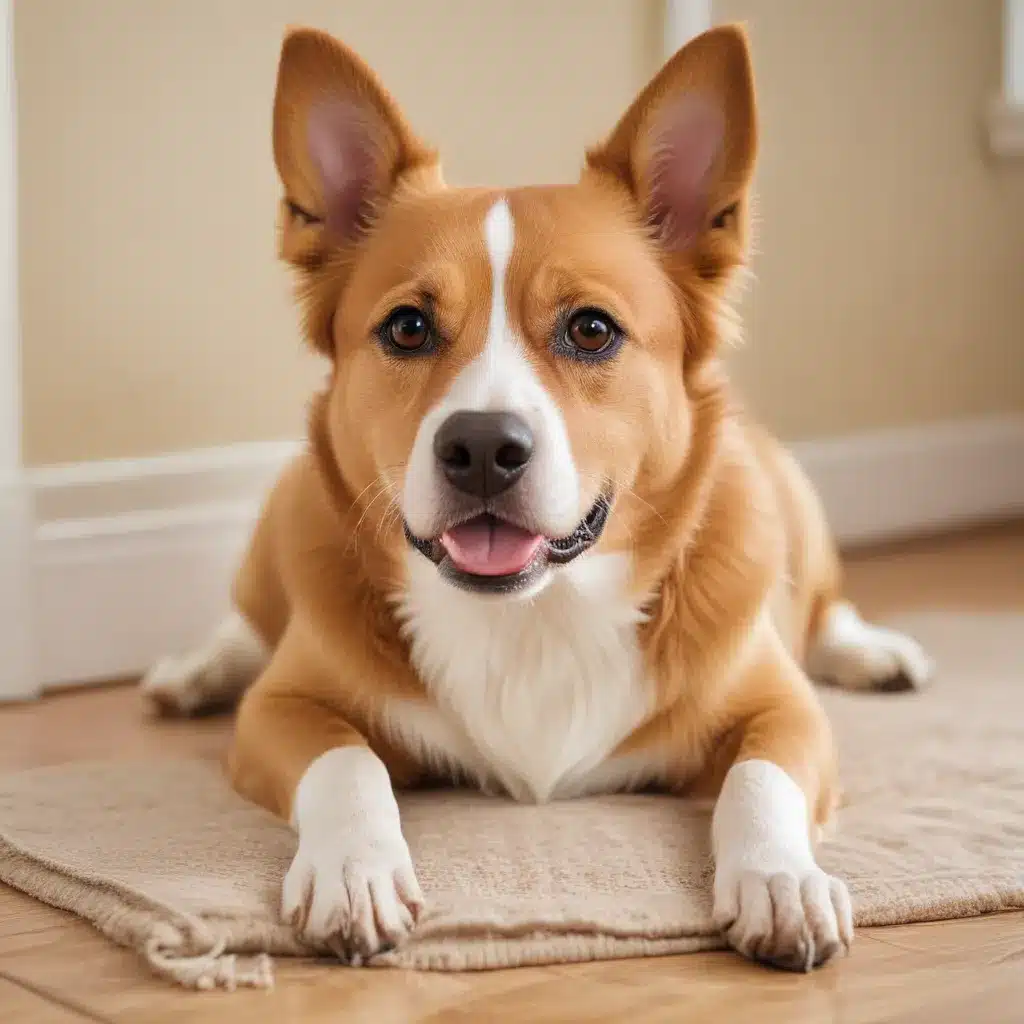
Ah, the joys of adopting an adult dog! You’ve opened your heart and home to a canine companion who’s already got some life experience under their collar. But with that comes the potential challenge of housetraining – or in this case, re-housetraining.
As someone who’s been there, done that (multiple times, I might add), I can tell you that it’s totally doable to get your newly adopted adult pup back on the right track when it comes to their potty habits. It just takes a little extra patience, consistency, and a whole lot of belly rubs.
Understanding the Adult Dog Housetraining Journey
Many adult dogs who end up in shelters or rescues were previously housetrained in their previous homes. However, the stress and upheaval of being in a kennel environment can sometimes cause them to regress a bit. Add in the new sights, sounds, and smells of your home, and you’ve got a perfect storm for some initial accidents.
But don’t worry, this doesn’t mean your dog is a lost cause. In fact, the re-housetraining process for an adult dog is often much quicker than starting from scratch with a puppy. They’ve got the basics down, they just need a little refresher course.
The key is to approach it with patience and understanding. Your new pup is just as eager to get this right as you are. They want nothing more than to make you happy and become a fully functioning member of the household. You just need to give them the tools and support to get there.
Setting Your Adult Dog Up for Housetraining Success
One of the most important things to remember is that for the first few weeks after bringing your new dog home, you should assume they’re not housetrained at all. Even if they were rock stars at it in their previous home, the transition to a new environment can cause some backsliding.
So treat it like you would with a brand new puppy. Establish a predictable routine for bathroom breaks, closely supervise their indoor time, and use confinement tools like crates or baby gates to limit their access to the rest of the house. This helps prevent accidents and reinforce the idea that outside is where the magic happens.
Crate training can be an especially helpful tool, as it taps into a dog’s natural instinct to keep their sleeping area clean. Just make sure the crate is the right size – big enough for them to stand up, turn around, and lie down, but not so spacious that they can eliminate in one corner and sleep in the other.
And speaking of routines, establishing a consistent potty schedule is key. Take your dog out first thing in the morning, after meals, after playtime, and before bedtime. Praise and treat them lavishly when they go in the right spot. This positive reinforcement will help cement the behavior you want to see.
Dealing with Setbacks and Accidents
Let’s be real – even the best-laid housetraining plans can go awry. Accidents happen, it’s just a fact of life. The important thing is how you handle them.
First and foremost, don’t punish your dog if you catch them in the act. Yelling, scolding, or rubbing their nose in it will only serve to make them afraid to go potty in front of you. That defeats the whole purpose.
Instead, interrupt them calmly, say “Oops!” or “No!” and immediately take them outside to their designated potty spot. If they finish their business there, shower them with praise and treats. This reinforces the right behavior.
As for cleaning up the mess, use an enzyme cleaner specifically designed for pet stains. This will help eliminate any lingering odors that could attract your dog back to the same spot. And try to clean it up as soon as possible before they have a chance to repeat the offense.
If you find that your adult dog is having frequent accidents, despite your best efforts, there could be an underlying medical issue at play. Schedule a vet checkup to rule out any urinary tract infections, incontinence, or other problems that could be interfering with their ability to hold it.
Adjusting to Life in a New Home
Another common reason for housetraining setbacks in adult dogs is the stress and anxiety that can come with a big life change, like being adopted into a new home.
The adjustment period can be tough, both for you and your canine companion. Suddenly, they’re in a strange environment with new sights, sounds, and smells. It’s no wonder they might have a few accidents as they get used to their new digs.
The key is to be patient and give your dog time to acclimate. Stick to a predictable routine, provide plenty of mental stimulation and exercise, and create a safe, comfortable space for them to call their own. With time and consistency, they’ll start to feel more at home and their housetraining skills will sharpen up.
Celebrating the Small Victories
Remember, Rome wasn’t built in a day, and the same goes for housetraining an adult dog. It’s a process, and there will be ups and downs along the way. But every time your pup successfully makes it outside to do their business, that’s a win worth celebrating!
So break out the high-value treats, give them lots of pets and praise, and maybe even do a little happy dance. They’ll quickly learn that going potty in the right place is the best thing ever. Before you know it, they’ll be proudly showing off their housetraining skills and making you one proud pet parent.
And who knows, maybe they’ll even inspire you to check out I Have Dogs for some more canine-related content and resources. After all, we’re all in this together, one belly rub at a time.

